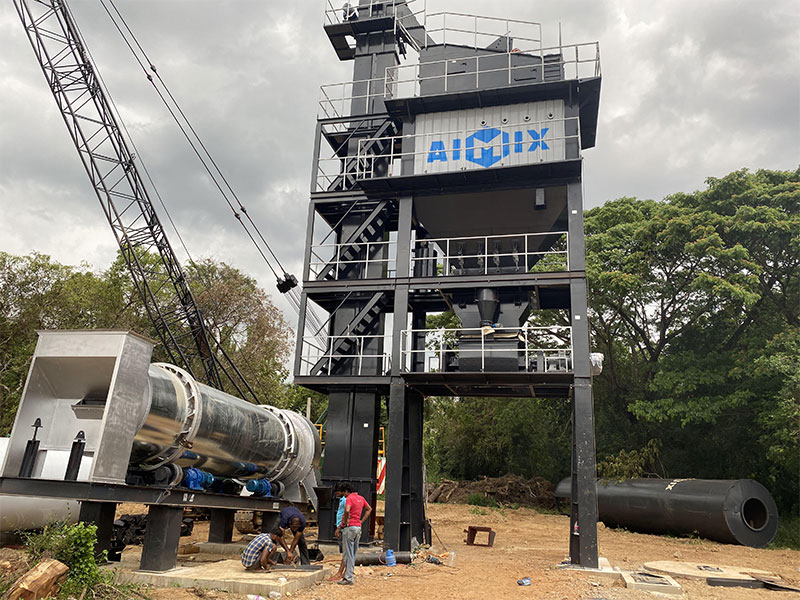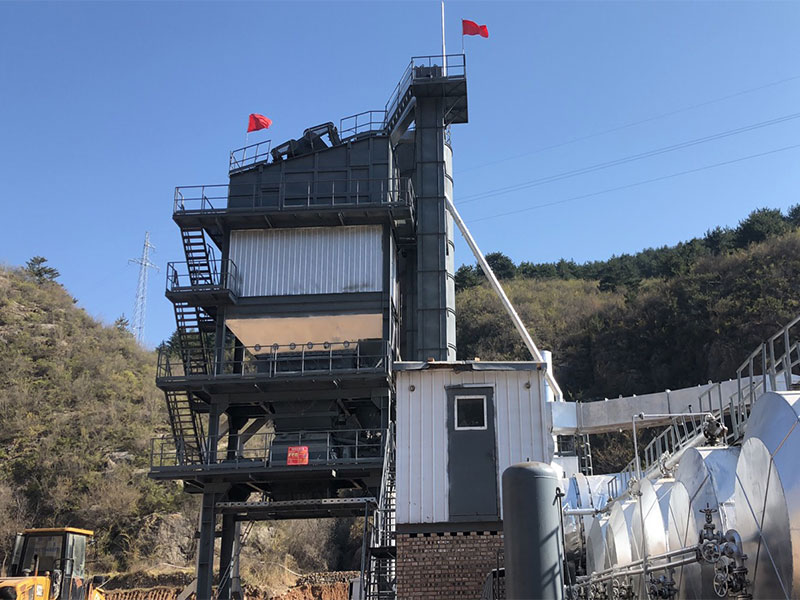Asphalt mixing plants play a crucial role in the construction industry, providing the essential component for road infrastructure. The efficiency of these plants directly impacts project timelines, costs, and the overall quality of asphalt production.
1. Advanced Technological Upgrades
Incorporating advanced technologies is a key strategy to boost the efficiency of asphalt mixing plant amp. Consider the following technological upgrades:

a. Automated Process Control Systems:
Implementing state-of-the-art process control systems helps optimize the mixing process by ensuring precise control over material proportions, temperature, and mixing times. Automation reduces human errors, enhances accuracy, and allows for real-time monitoring.
b. Innovative Mixing Units:
Upgrading to modern mixing units with improved design and technology can enhance the homogeneity and quality of the asphalt mix. Innovations in mixing technology contribute to better temperature control, reduced energy consumption, and increased production rates. This design has acquired obvious performance for mobile asphalt plants: https://aimixmachinery.com/mobile-asphalt-plant-for-sale/.
c. Energy-Efficient Burners:
Utilizing energy-efficient burners in the heating process significantly reduces fuel consumption. Modern burners are designed for optimal combustion efficiency, ensuring that energy is used effectively, leading to cost savings and environmental benefits.
2. Regular Maintenance Practices
The longevity and efficiency of an asphalt mixing plant are closely tied to regular and proactive maintenance. Neglecting maintenance can result in downtime, increased repair costs, and compromised production quality. Key maintenance practices include:
a. Routine Inspections:
Conduct regular inspections of all components, including the drying drum, mixing chamber, belts, and electrical systems. Identify and address any signs of wear, corrosion, or malfunction promptly.
b. Lubrication:
Ensure that all moving parts are adequately lubricated. Proper lubrication reduces friction, minimizes wear and tear, and extends the lifespan of critical components.
c. Cleaning and Calibration:
Regularly clean the plant to prevent the accumulation of debris and asphalt residue. Additionally, calibrate measuring instruments and sensors to maintain accuracy in material proportions and temperature control.

d. Spare Parts Management:
Maintain a well-organized inventory of spare parts. Quick access to critical components reduces downtime in the event of equipment failure and accelerates the repair process.
3. Optimal Operational Practices
Efficient operation is fundamental to the overall productivity of an asphalt drum mix plant. Implementing best practices in operational procedures can significantly enhance efficiency:
a. Batch Size Optimization:
Adjusting the batch size to match project requirements can optimize production efficiency. Avoid running the plant at partial capacity, as it may lead to energy waste and increased fuel consumption.
b. Timely Material Loading:
Ensure a streamlined process for loading raw materials into the plant. Delays in material loading can disrupt the entire production schedule, affecting efficiency and output.
c. Temperature Control:
Maintain strict control over the temperature of the asphalt mix throughout the production process. Proper temperature control ensures the quality of the final product and prevents issues such as segregation.
d. Training Programs:
Invest in training programs for plant operators and maintenance staff. Well-trained personnel are better equipped to operate the plant efficiently, troubleshoot issues, and implement preventive maintenance measures.
4. Environmental Considerations
Sustainability and environmental responsibility are increasingly important considerations in asphalt plant operations. Integrating eco-friendly practices not only aligns with environmental regulations but also contributes to cost savings:
a. Recycling Technologies:
Explore and invest in technologies that allow for the recycling of asphalt materials. Reclaimed asphalt pavement (RAP) can be reintegrated into new mixes, reducing the demand for fresh aggregates and minimizing waste.
b. Dust Collection Systems:
Install efficient dust collection systems to minimize emissions and improve air quality. Dust control is not only a regulatory requirement but also contributes to a safer working environment for plant personnel.
c. Energy Management:
Implement energy-efficient practices, such as optimizing heating processes and utilizing renewable energy sources where feasible. Energy-efficient operations lead to cost savings and reduce the environmental footprint of asphalt production.
5. Continuous Monitoring and Data Analysis
Implementing a comprehensive monitoring and data analysis system provides valuable insights into plant performance. Real-time monitoring allows for prompt identification of inefficiencies, deviations, or potential issues, enabling quick corrective actions. Data analysis helps in making informed decisions regarding process optimization, maintenance schedules, and resource allocation.
Conclusion
Improving the working efficiency of asphalt mixing plants is a multifaceted endeavor that involves the integration of advanced technologies, rigorous maintenance practices, optimal operational strategies, and a commitment to environmental sustainability. By embracing innovation and adopting best practices, asphalt plant operators can enhance production rates, reduce costs, and contribute to the development of high-quality road infrastructure. As the construction industry evolves, efficient and eco-friendly asphalt mixing plants are essential components in meeting the growing demand for durable and sustainable road networks. You can get more information from aimix group.
